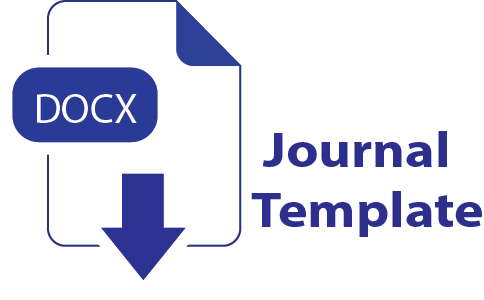Pengembangan Metode E-Learning Dalam Mendukung Motivasi Belajar Mahasiswa
Abstract
ABSTRAK
Banyak perguruan tinggi yang menggunakan pembelajaran online yaitu e-learning. Salah satu media pembelajaran yang mulai digunakan dalam dunia pendidikan di era covid-19 saat ini adalah media pembelajaran berbasis komputer dan internet atau yang dikenal dengan e-learning. Penelitian ini bertujuan untuk mengetahui hubungan antara kompetensi dosen dengan motivasi belajar dalam penggunaan e-learning. Metode yang digunakan adalah kuantitatif eksplanatori dengan jumlah sampel 100 responden dari mahasiswa program studi ekonomi unimed. Analisis data yang digunakan adalah sem-pls. Berdasarkan hasil penelitian dijelaskan bahwa motivasi belajar berpengaruh terhadap kompetensi dosen dan metode e-learning yang diberikan kepada mahasiswa. Hasil penelitian juga menjelaskan bahwa kompetensi yang dimiliki dosen dalam proses pembelajaran online berpengaruh positif dan signifikan terhadap metode e-learning yang diajarkan.
Kata Kunci: Motivasi, Kompetensi, E-Learning
ABSTRACT
Many universities use online learning, namely e-learning. One of the learning media that has begun to be used in the world of education in the current Covid-19 era is computer and internet-based learning media or known as e-learning. This study aims to determine the relationship between lecturer competence and learning motivation in the use of e-learning. The method used is explanatory quantitative with a sample of 100 respondents from students of the Unimed economics study program. Analysis of the data used is sem-pls. Based on the results of the study, it was explained that learning motivation had an effect on the competence of lecturers and e-learning methods given to students. The results of the study also explain that the competencies possessed by lecturers in the online learning process have a positive and significant effect on the e-learning method being taught.
Keywords: Motivation, Competence, E-Learning
References
Amanahtuzuriah, Nurmadiah, And Asmariani. 2017. “Pengaruh Kepemimpinan Kepala Sekolah Terhadap Kompetensi Guru Di Sdn 035 Tembilahan.” Jurnal Al-Afkar V(1): 28–39.
Blerton Abazi., & Edmond Hajrizi. 2018. Reseach on the Importance of training and professional certification in the field of ICT Casse Study in Kosoco. IFAC PapersOnline, 336-339
Bungin, B. 2013. Metodologi Penelitian Kuantitatif: Komunikasi, Ekonomi, dan Kebijakan Publik Serta Ilmu-Ilmu Sosial Lainnya. Jakarta: Kencana.
Chin-Hsi Lin.,Yining Zhang., & Binbin Zheng. 2017. The roles of learning strategies and motivation in online language learning: A structural equation modeling analysis. Journal Computer & Education, 75-78
De Vos, Ans., De Hauw, Sara., & Willemse, Ine. 2011. Competency Development In Organizations: Building An Integrative Model Through A Qualitative Study. The Autonomus Management School of Ghent University and Katholieke Universiteit Leuven
Edison, Emron. Yohny anwar, Imas komariyah. 2016. Manajemen Sumber Daya Manusia. Bandung: Alfabeta.
Ehlers, U., Schneckenberg, D. & Adelsberger, H.H. 2008. Stepping up the Ladder - Competence Development Through E-Learning?!. University of Duisburg- Essen, Germany. http://www.editlib.org/p/28954
Guerrero., Dante A.M., De los Rios., & Ignacio. 2012. Learning model and competences certification in the project management scope: An empirical application in a sustainable development context. Journal social and behavioral science, 1297-1305
Hamalik, Oemar. 2015. Kurikulum dan Pembelajaran. Jakarta: Bumi Aksara.
Hapsari, S. 2005. Bimbingan dan Konseling SMA Untuk Kelas XII. Jakarta : PT Grasindo
Hasbullah. 2014. “Blended learning, Trend Strategi Pembelajaran Matematika Masa Depan”. Jurnal Universitas Indraprasta PGRI, 4(1): 65-70.
Hasan, Najmul, and Yukun Bao. 2020. “Children and Youth Services Review Impact of ‘ e-Learning Crack-up ’ Perception on Psychological Distress among College Students during COVID-19 Pandemic : A Mediating Role of ‘ Fear of Academic Year Loss .’” Children and Youth Services Review 118(July): 105355. https://doi.org/10.1016/j.childyouth.2020.105355
Hsiu-Feng SHIH., Shu-Hui Eileen CHEN., Shu-Chu CHEN., & Shyh-Chyi WEY. 2013.The Relationship Among Tertiary Level EFL Students’ Personality, Online Learning Motivation And Online Learning Satisfaction. Journal social and behavioral science, 1152-1160
Ihsanti, E. 2014. Pengaruh Kompetensi Sumber Daya Manusia dan Penerapan Sistem Akuntansi Keuangan Daerah Terhadap Kualitas Laporan Keuangan Daerah (Studi Empiris pada SKPD Kab. Lima Puluh Kota). Jurnal Akuntansi, 2(3).
Kandula R. Srinivas. 2013. Competency Based Human Resource Management: A Compelette Text With Case Studies on Competency Mapping, Modelling, Assessing and Applying. Gtae Corporation. Bangalore, Delhi.
Kellermann P and G Sagmeister. 2000. Higher education and graduate employment in Austria. European Journal of education Vol 35 No 2 June 2000.
Khan, B. 2005. Managing E-Learning: Design, Delivery, Implementation and Evaluation. Hershey: Information Science Publishing.
Khayatun, Nur, And Muhdi. 2016. “Pengaruh Motivasi Kerja Dan Diklat Terhadap Kompetensi Pedagogik Guru Sekolah Dasar Di Kecamatan Sragi Kabupaten Pekalongan.” : 89–100.
Kompri. 2016. Motivasi Pembelajaran Perspektif Guru dan Siswa. Bandung: PT Remaja Rosdakarya.
Ley, T., Lindstaedt, S., & Albert, D. 2005. Competency Development in Knowledge Management and e-Learning: Supporting Informal Workplace Learning. In K. Althoff, A. Dengel, R. Bergmann, M. Nick (Eds.), Lecture Notes in Artifial Inteligence, Vol. 3782, Pages 189-202.
Moeheriono, 2014. Pengukuran Kinerja Berbasis Kompetensi. Bogor : Penerbit Ghalia Indonesia.
Munir. 2005. Konsep dan Aplikasi Program Pembelajaran Berbasis Komputer (Computer Based Interaction). P3MP, UPI.
Noe, Raymond A. 2010. Employe Training and Development Fifth Edition. New York: McGraw Hill
Pranoto, & Alvini. 2009. "Sains dan Teknologi". Jakarta: PT Gramedia Pustaka Utama.
Prasetyo, B. & Jannah. 2012. Metode Penelitian Kuantitatif. Jakarta: Rajawali Pers
Rosenberg, Marc J. 2001. E-learning: Strategies for Delivering Knowledge in the Digital Age. United State: The McGraw Hill Companies
Rosenberg, Marc. J. 2001. E-Learning : Strategies For Delivering Knowledge In The Digital Age. USA : McGraw-Hill Companies
Rusman. 2015. Pembelajaran Tematik Terpadu : Teori, Praktik dan Penilaian. Jakarta : Rajawali Pres.
Santrock. 2003. Adolescence: Perkembangan Remaja (edisi keenam). Jakarta: Erlangga.
Sardiman, A.M. 2007. Interaksi dan Motivasi Belajar Mengajar. Bandung : Rajawali Pers.
Satria, R Okky, and Asep Kuswara. 2013. “Pengaruh Motivasi Dan Pelatihan Terhadap Kompetensi Kerja Serta Implikasinya Pada Produktivitas Pegawai Dinas Perhubungan Kota Bandung.” 7(2): 74–83.
Singgih, G. 2008. Psikologi Anak: Psikologi Perkembangan Anak dan Remaja. Jakarta: PT BPK Gunung Mulia.
Sutrisno, Edy. 2015. Manajemen Sumber Daya Manusia(Cetakan ke tujuh). Jakarta: Kencana Prenada Media Group.
Uno, H. 2016. Teori Motivasi dan Pengukurannya. Jakarta: PT Bumi Aksara Bandung PT Remaja Rosdaka Karya.
Waller, Vaughan and Wilson, Jim. (2001). A Definition for E-Learning” in Newsletter of Open and Distance Learning Quality Control. Tersedia : http://www.odlqc.org.uk/odlqc/n19-e.html
Full Text: PDF










